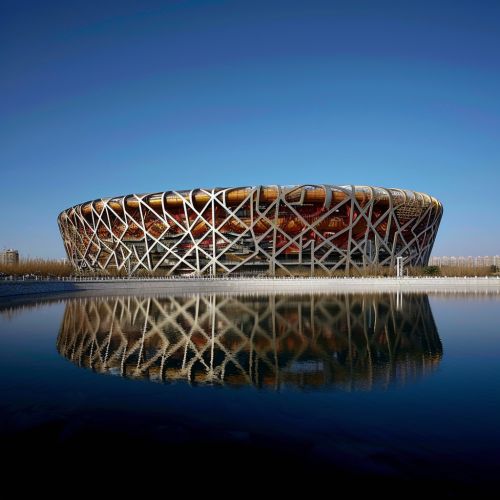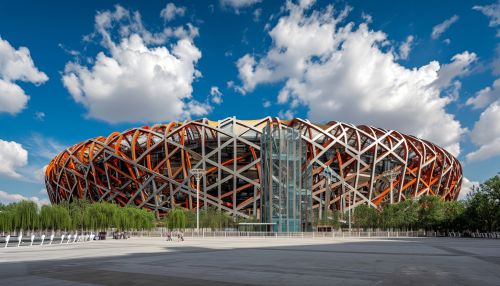Beijing National Stadium
Overview
Beijing National Stadium, also known as the Bird's Nest, is a stadium in Beijing, the capital of the People's Republic of China. Completed in 2008, it was the main venue for the 2008 Summer Olympics. The stadium's design, which originated from the study of Chinese ceramics, implemented steel beams in order to hide supports for the retractable roof; giving the stadium the appearance of a "Bird's nest". Hence, the origin of its nickname.
Design and Construction
The design of Beijing National Stadium was the product of a collaboration among architects from the Swiss architecture firm Herzog & de Meuron, project architect Stefan Marbach, artist Ai Weiwei, and CADG, led by chief architect Li Xinggang. The design was inspired by the shape of a bird's nest, a design which the architects believed would embody the Olympic spirit.


The construction of the stadium began on December 24, 2003. The process was a massive undertaking, involving thousands of workers and costing an estimated $428 million. The stadium was officially completed on June 28, 2008, just in time for the 2008 Summer Olympics.
Features
The Beijing National Stadium spans 258,000 square meters and has a seating capacity of 80,000, making it one of the largest stadiums in the world. The stadium's unique design features a complex network of steel beams and supports, which give it the appearance of a bird's nest. The roof of the stadium is retractable, allowing for both open-air and enclosed events. The stadium is also equipped with advanced sound and lighting systems, making it suitable for a wide range of events, from sports to concerts.
Events
The Beijing National Stadium has been the venue for numerous significant events since its completion. The most notable of these was the 2008 Summer Olympics, during which the stadium hosted the opening and closing ceremonies, as well as the athletics and football events. The stadium has also been used for a variety of other events, including concerts, cultural festivals, and sporting events.
Legacy
The Beijing National Stadium has become a symbol of modern China and a major tourist attraction. The stadium's unique design and its association with the 2008 Summer Olympics have made it an iconic landmark in Beijing. The stadium is also a testament to China's rapid economic development and its growing influence on the global stage.
